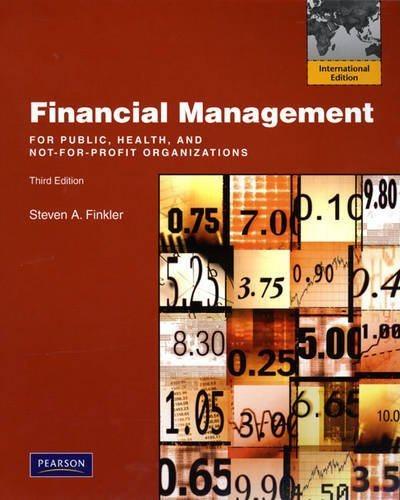Question
Consolidated Edison (Con Ed) is the electric utility that supplies power to residences and businesses in New York City. It is a quasi-monopoly whose prices
Consolidated Edison (Con Ed) is the electric utility that supplies power to residences and businesses in New York City. It is a quasi-monopoly whose prices and profits are regulated by the state of New York.
We will be valuing Con Ed using a stable growth dividend discount model because it fits the criteria for the model:
The firm operates in a region where the population and power usage have leveled off over the past few decades.
The regulatory authorities will restrict price increases to be about the inflation rate.
The firm has had a stable mix of debt and equity funding its operations for decades.
Con Ed has a clientele of dividend-loving investors, and attempts to pay out as much as it can in dividends.
During the period 20062010, the firm returned about 95% of its free cash flows to equity (FCFE) as dividends.
To value the company using the stable growth dividend discount model, we start with the earnings per share of $3.47 that the firm reported for 2010 and the dividends per share of $2.22 it paid out for the year. Using the average beta of 0.80 for power utilities and an equity risk premium of 5% and the risk-free rate was 3.5%.
Step by Step Solution
There are 3 Steps involved in it
Step: 1

Get Instant Access to Expert-Tailored Solutions
See step-by-step solutions with expert insights and AI powered tools for academic success
Step: 2

Step: 3

Ace Your Homework with AI
Get the answers you need in no time with our AI-driven, step-by-step assistance
Get Started


